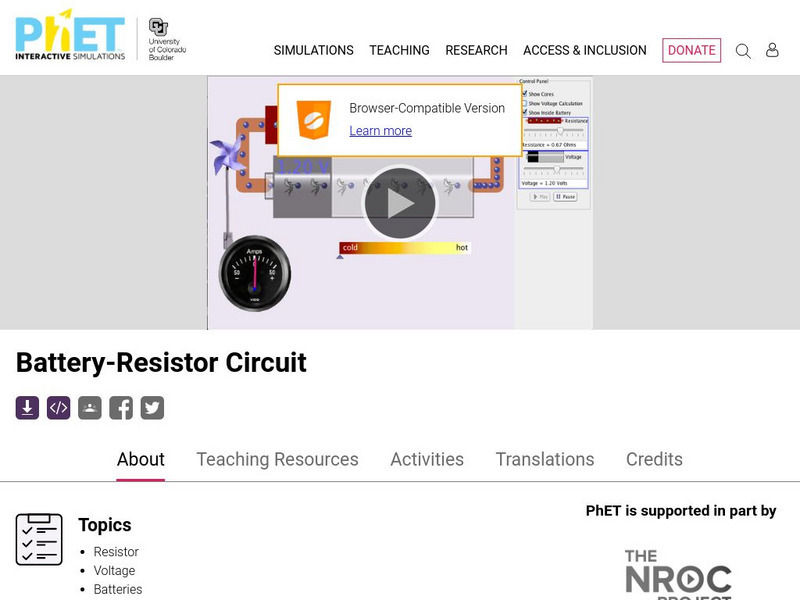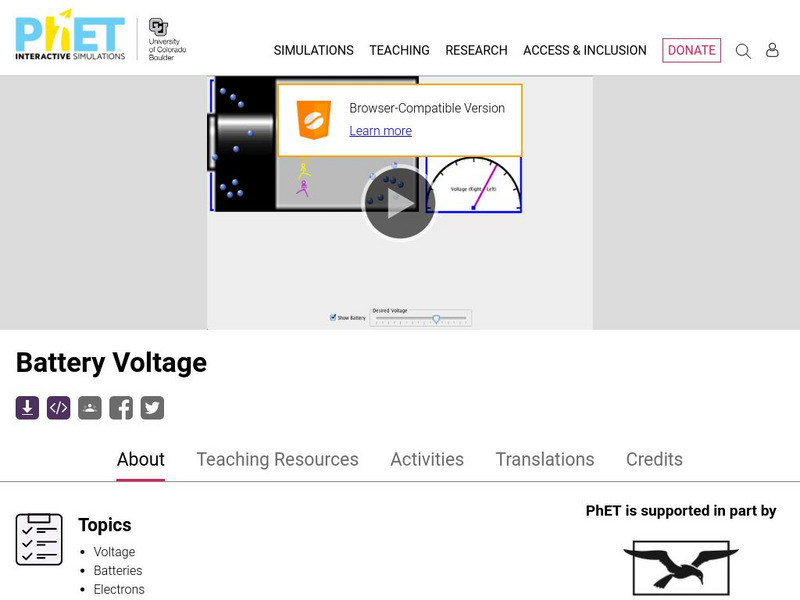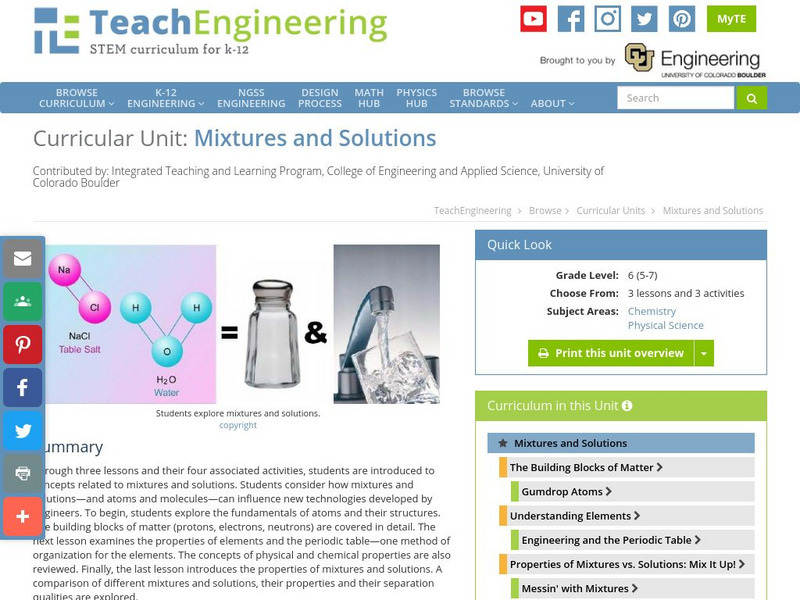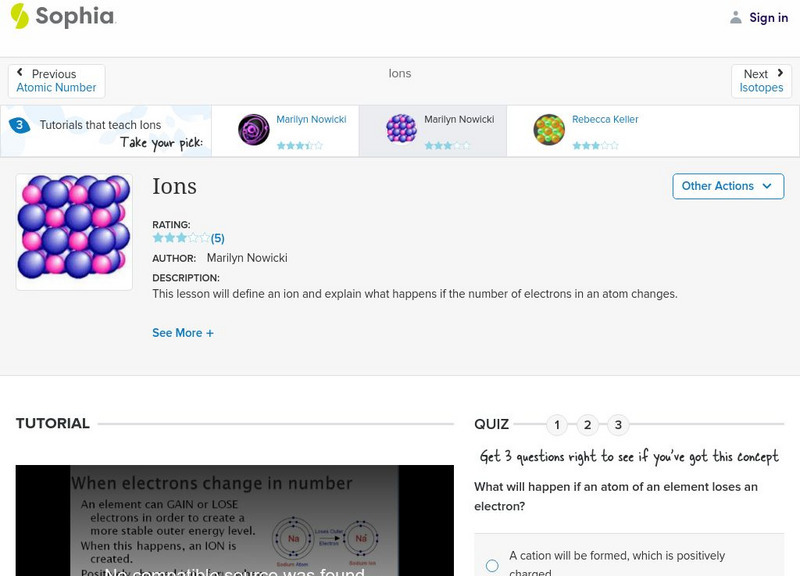Curated OER
The Atoms Family ~ Atomic Math Challenge
Bold boxes present parts of the periodic table, with some of the contents conveniently missing. Beginning chemists fill in the blanks, which may include the atomic number, atomic mass, atomic symbol, or element name. Beneath each box...
Curated OER
Gumdrop Crystal Models
A great way to learn about molecular structures is to make a model. Gumdrops and toothpicks are used to construct crystal models. The models are based on theories of crystal shapes that occur because of positive and or negatively charged...
Curated OER
Typical Numeric Questions for Physics I - Photoelectric Effect
As the title implies, here is a collection of typical photoelectric effect problems that physics learners need to be able to solve. They determine the amount of energy of a photon, the photons produced per second, the frequency required...
Curated OER
Atoms and Elements: An Introduction
Students are able to discuss the difference between a proton, a neutron and an electron. They also can explain the difference between an ionic and a covalent bond. Students know the main structure of atoms and molecules. Student are able...
Curated OER
Element Trading Cards
In this chemistry activity, students use the Internet to research the elements in the Periodic Table to locate the number of proton, neutrons, and electrons. They also draw pictures that illustrate one or more uses for their elements.
University of Colorado
University of Colorado: Ph Et Interactive Simulations: Battery Resistor Circuit
Look inside a resistor to see how it works. Increase the battery voltage to make more electrons flow through the resistor. Increase the resistance to block the flow of electrons. Watch the current and resistor temperature change. Java...
University of Colorado
University of Colorado: Ph Et Interactive Simulations: Battery Voltage
Look inside a battery to see how it works. Select the battery voltage and little stick figures move charges from one end of the battery to the other. A voltmeter tells you the resulting battery voltage. Java required.
TeachEngineering
Teach Engineering: Mixtures and Solutions
This unit covers introductory concepts of mixtures and solutions. Students think about how mixtures and solutions, and atoms and molecules can influence new technologies developed by engineers. The first lesson explores the fundamentals...
Georgia State University
Georgia State University: Hyper Physics: Hund's Rules
A complete overview of Hund's rules including exceptions.
Georgia State University
Georgia State University: Hyper Physics: Hund's Rules
An excellent overview of Hund's Rules. Discusses all three rules thoroughly with provided diagrams.
Lawrence Berkeley National Laboratory
Berkeley Lab: The Particle Adventure: Leptons
This particle physics tutorial discusses the different types of leptons: the electron, tau lepton, muon lepton, and neutrinos.
Physics Classroom
The Physics Classroom: Grounding a Positively Charged Electroscope
This Physics Classroom tutorial contains a simple animation demonstrating the grounding process for a positively-charged electroscope. The movement of electrons between the electroscope and ground is shown. An explanation accompanies the...
Physics Classroom
The Physics Classroom: Inducing a Positive Charge on a Sphere
This tutorial from the Glenbrook South High School provides an animation depicting the induction charging of a single sphere by the process of induction. The movement of electrons is shown. The animation is accompanied by explanations of...
Physics Classroom
The Physics Classroom: Charging a Two Sphere System by Induction
From the Multimedia Physics Studios. An animation depicting the induction charging of a double sphere system by the process of induction. The movement of electrons between spheres and between the ground and sphere is shown. The animation...
Other
Sir Joseph John Thomson
Have you ever wondered who discovered the electron? The answer is Nobel Prize winning physicist Sir Joseph John Thomson.
Sophia Learning
Sophia: Ions: Lesson 1
This lesson will define an ion and explain what happens if the number of electrons in an atom changes. It is 1 of 3 in the series titled "Ions."
Physics Classroom
The Physics Classroom: Electrophorus by Induction
This tutorial offers an animation depicting the induction charging of an electrophorus plate by the process of induction. Animation depicts the movement of electrons between plat and ground. The animation is accompanied by explanations...















